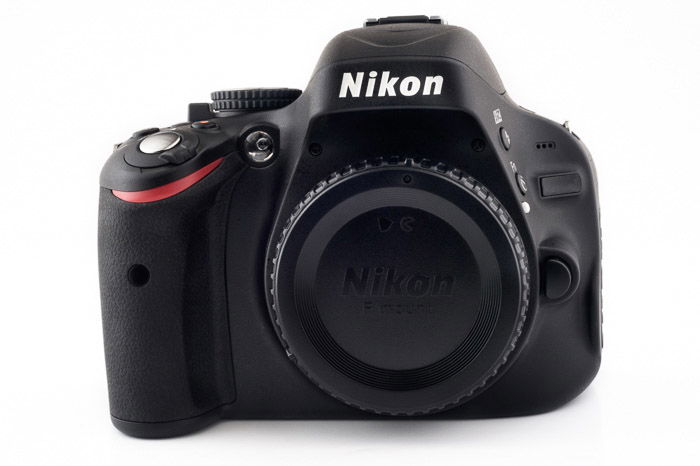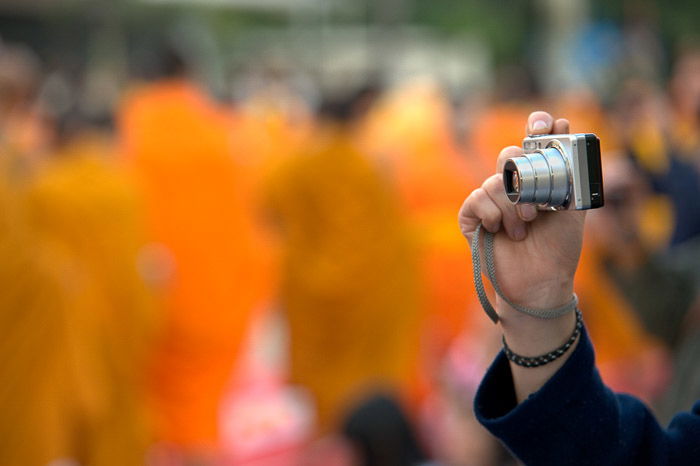But shopping on the grey market is not always the best option. You may end up losing money on a bad purchase. Here’s what you need to know before buying cameras on the grey market. We’ll tell you all about avoiding the most common mistakes. And how to tell a bad purchase from a genuine one.
What Are Grey Market Cameras and Gear?
The black market is where illegal goods are traded. Legal goods are bought and sold through the white market. The grey market falls somewhere in-between these two. Grey market goods may or may not be genuine products. Often, cameras and photography gear sold on the grey market have been imported independently. They do not have the consent of the authorized dealer. Some are refurbished products. These are then repackaged and sold as new. Some of these products are imported from Asian countries. A lot of camera gear is manufactured and sold at cheaper prices in these countries. eBay and other online markets are the most common places where you’ll find grey market goods for sale. Many small camera stores also sell grey market camera equipment. Some online camera stores like Abe’s of Maine and Jet Camera have reputations for grey market sales and less than satisfactory after sales service. Read the reviews carefully and they can provide you with a reasonable idea of the quality of service you are likely to receive from any camera outlet. eBay and similar online auction houses are popular places for purchasing grey market cameras or equipment. Countries have different laws governing purchasing any equipment that may be covered by tariffs. You need to check that making such a purchase is legal where you live. Checking the seller’s displayed credentials and reviews will help you make an informed choice. Reputable sellers will clearly display their good history of sales, through reviews and star ratings. Individuals who run small businesses will do the same. Finding a seller with no reviews or star ratings is a red flag. Proceed with care and ask many questions. Maybe they are genuinely new sellers. But if they appear not be operating a business and have no good supporting reviews or ratings, they may not be worth dealing with. Grey market camera dealers will often engage in misleading advertising tactics. They are designed to trick you into thinking the product is legitimate. If the price seems too good to be true, then it’s probably because the product is a grey import. Major camera gear manufacturers strongly advise against buying grey market cameras or equipment. Some manufacturers will, at times, sell their products in bulk to third parties, knowing it will be sold on the grey market. This may be because they have updated their range and need to clear a surplus.
Major Drawbacks to Purchasing Grey Market Cameras and Gear
Both Nikon and Canon USA have strongly worded information on their websites. They discourage camera buyers from purchasing products other than through an authorized dealer. Manufacturer websites contain lists of reasons not to buy grey market cameras:
The camera may be illegal or counterfeit; Accessories may be counterfeit and cause damage to your product; Power cables and adapters may be incorrect; The software may be missing, pirated or incorrect; Warranties may be fake or nonexistent; Manuals may be missing, incomplete or pirated; Grey market products were not designed for sale in the country you bought them and may not meet your expectations; Devices with missing or fake serial numbers will not be eligible for repair by authorized agents; Grey market products are not eligible for promotions or rebates.
The price of grey market cameras may be very attractive. But there are many drawbacks to purchasing. There is never a manufacturer’s warranty with grey market equipment. This is part of the reason it’s so cheap. There is absolutely no support when anything goes wrong. Most registered repairers will also not work on equipment that’s been bought on the grey market. Some authorized repairs will work on grey market equipment but include an expensive surcharge to carry out the work. If a warranty is offered with grey market gear, it will be from a foreign country. This is where the camera gear originated and the warranty will be limited. It will be of no use in the country you bought it in. Some grey market sellers offer “USA Warranty” or a “Store Warranty”. These are not genuine and will be useless to you. Accessories that come with cameras, such as chargers and batteries, may not be compatible in your country. Chargers may not plug directly into your wall socket. They are configured for use in a foreign country. They may also be designed for power supply of a different voltage. Batteries may not be original. Third party batteries will work but have limited capacity and a shorter lifetime than the genuine product. Many cameras now only function with smart batteries that communicate with the camera. With the wrong battery, the camera will not power up. Firmware upgrades for camera equipment are only issued by the manufacturers. Without proper documentation, upgrading the firmware is not possible. This becomes most problematic when a camera has been released and a flaw is later discovered. When new firmware is provided to fix the issue, grey market buys will not be able to benefit from it. Purchasing grey market cameras doesn’t always mean you’ll get a complete fake. However, you might get a refurbished camera or one that has serial numbers which do not match. The number stamped on the base of the camera must match the internal serial number. There’s no way of checking this without connecting the camera to an authorized repair agent’s system.
How Do You Know If You Are Buying White Market or Grey Market Camera Gear?
Genuine equipment sold by an authorized dealer will always include certain things. Such as the proper accessories and software you expect to receive when buying a camera. These will all be packaged and labeled. They may even have serial numbers stamped on them. Proper documentation, manual and warranty will accompany your camera if it’s genuine. Look to see if the warranty or manuals appear to have been photocopied. If they have been, you are looking at grey market gear. Even if the warranty looks genuine, check it. Make sure that it is applicable to the country you bought the camera in. Imported grey market cameras can often come with warranties that will only be honored in another country. This will be useless to you when your camera develops a fault. Ask lots of questions. Make sure the salesperson knows what they are talking about. It’s important to get complete, satisfying answers in regards to the warranty offered. If you do not receive answers specific to the equipment you are looking to buy, see this as a red flag. You also need to know about the return policy on the gear. Can you return it ‘no questions asked’ and expect a refund? If this is an option, is it time sensitive? Does it last one week, one month or more? Make sure this is written down and included in the documentation. Check to see that the barcodes and QR codes on the boxes are legible. Make sure they have not been defaced or tampered with. Missing or damaged code stickers are a good sign that the product is grey market. Obtain a detailed receipt with a breakdown of the price for each item you are purchasing. Make sure the date on the receipt is correct.
Conclusion
The most certain sign that a product is being sold as a grey market item is an unbelievably cheap price. Even when genuine white market stores sell at discount prices, they will not fall below a certain price point. Finding a camera you want to buy at a really low price is exciting. But before you jump in and spend your hard earned money, do a little checking. search online for the specific item you have found at the unbelievable price. Make some comparisons amongst reputable dealers. Many grey market products will have nothing wrong with them. They are the genuine article. Do your research before purchasing anything on the grey market, ask a lot of questions and listen to your gut. If it feels too good to be true, it probably is. Why not check out our reviews on the Sigma 70-200mm f/2.8 DG OS HSM Sports Lens or Profoto A1 Flash!






